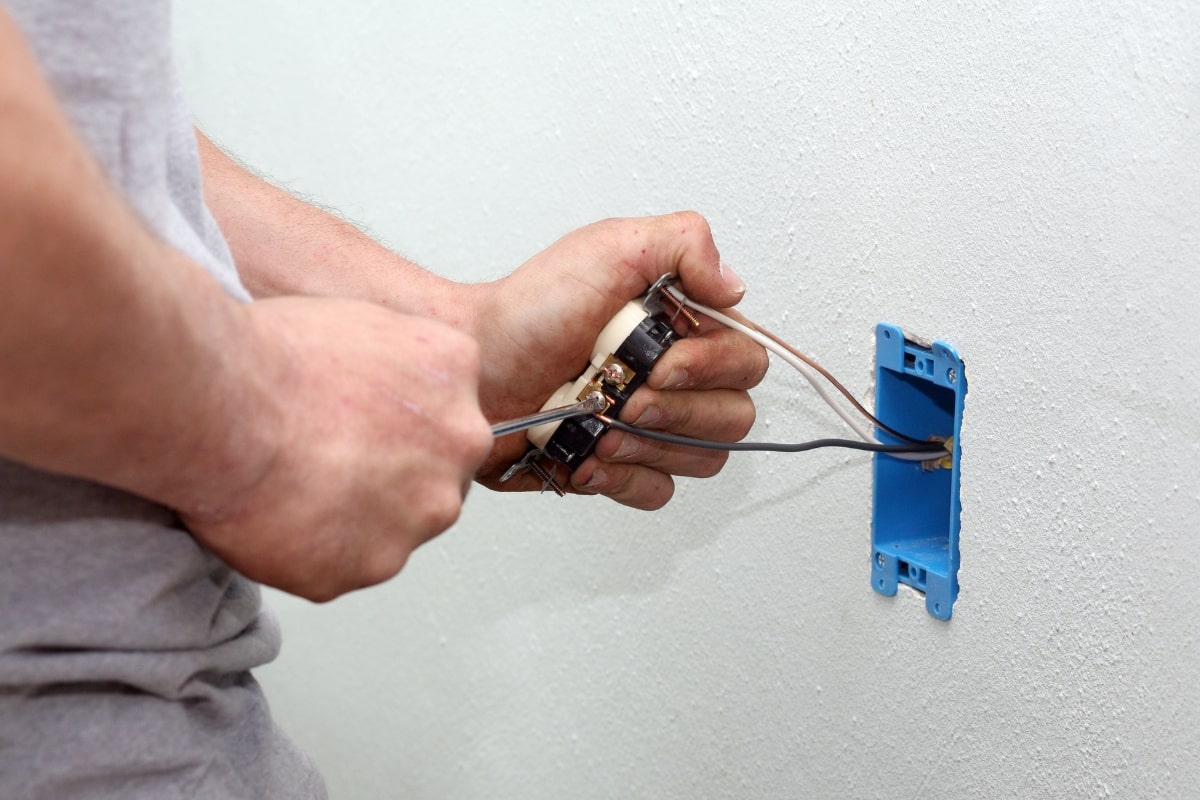Have you experienced a short circuit? Are you worried that it’s dangerous?
The answer is: Yes! Short circuits can be dangerous. Here’s why.
The shorter path can be caused by damaged wires or loose connections. A sign of a loose or damaged wiring is light bulbs continue to burn out quickly.
The path that electrical currents can take will be unpredictable, and could lead through flammable materials, or a living person or animal that comes in contact with it.
Short circuits can cause electrical fires, electrical shock or burns, and even electrocution.
A stray electrical current can also cause significant damage to your home’s electrical system, as well as any electrical appliances that are plugged in.
What is a Short Circuit?
An electrical circuit is a continuous, unbroken flow of energy from your home’s electrical panel and back again.
When you plug something in or flip a switch, the circuit remains complete; the lights or outlets along this circuit borrow from it.
A short circuit is a common electrical danger that many people might not know about.
A short circuit is what happens when an electrical current finds a shorter path back to ground than what is available on the circuit.
When there is an alternate path of least resistance, the electrical current changes its course and heads to ground by this shorter, easier path.
Essentially, a short circuit is what happens when a hot wire (that is, a wire that has power flowing through it) touches a conductive object that it’s not supposed to, such as a neutral wire, grounded object, or any flammable material.
Types of Short Circuit
In a normal short circuit, a hot wire touches a neutral wire. When this happens, resistance immediately drops, and the current begins moving along a new path.
In a ground fault short circuit, a hot wire touches a grounded section of an appliance, outlet, or device (this could anything supplied by the electrical current).
Any number of reasons can cause a short circuit:
- Exposed wires that have become damaged (such as pests chewing through wiring)
- Water or fluids coming into contact with wiring
- Loose wire connections in your circuit breaker
- Nail and screw punctures into wires
- Old or damaged components of your electrical system (such as outlets, switches, lights, or appliances)
- Deterioration of electrical wire sheathing
- Build-up or surges of electricity
How to Prevent a Short Circuit
1. Regular Electrical Inspections
Just as your car needs a yearly tune-up, your electrical system should be regularly checked. A professional electrician can examine your system and discover if there are any abnormal electric connections.
Most times, a short circuit occurs because of a degradation of wires in your electrical system or old or malfunctioning appliances. While there are some electrical tasks you can DIY, when it comes to your electrical system, leave the inspections to the experts.
2. Circuit Breaker
Your home should already have some protection against short circuits in the form of circuit breakers. A circuit breaker will shut off the electrical components in your panel whenever it detects an unstable electrical current.
Keep your circuit breaker well maintained by regularly inspecting for any faulty wiring, loose box connections, or other damage.
If your circuit breaker regularly trips immediately after being reset, it’s likely that you have a wiring problem somewhere along the circuit (or in a connected appliance). It could also be a sign that your electrical panel needs to be replaced.
3. AFCI Protection
Arc fault circuit interrupters protect against electric arc, which is what happens when electricity jumps between two metal contacts (usually at loose connections).
AFCI devices anticipate short circuits and shut the power off before it can cause a short circuit. These devices are a good solution to prevent short circuit electrical fires caused by arcing.
4. GFCI Protection
Ground fault circuit interrupters are similar to circuit breakers, but more accurate due to increased sensitivity in the current flow.
At the slightest sign of current fluctuation, the GFCI will automatically shut off. These devices help protect against electrical shock that come from short circuits.
5. Inspect Old Outlets
Your outlets are your main point of contact between you and your electrical system, so be sure to check them before plugging anything in.
If you hear buzzing, see or smell burning or smoke, or see any sparks, don’t use that outlet and call an electrician!
6. Inspect Appliances
Just as you should inspect your outlets, you also need to make sure that your appliances are in good working order. Faulty wiring, loose connections, or cracks in the sheathing could all contribute to a short circuit.
Protect Yourself and Your Electrical System from Short Circuits
If you suspect your Calgary home is at risk of a short circuit, give our team a call.
Every professional electrician at Sun Electrical can inspect and repair your faulty electrical system, share advice about how to prevent a short circuit, perform routine safety checks and inspections, and safely wire your entire home or any rooms you are renovating.
We’re ready to help make your home the safe haven it should be.





